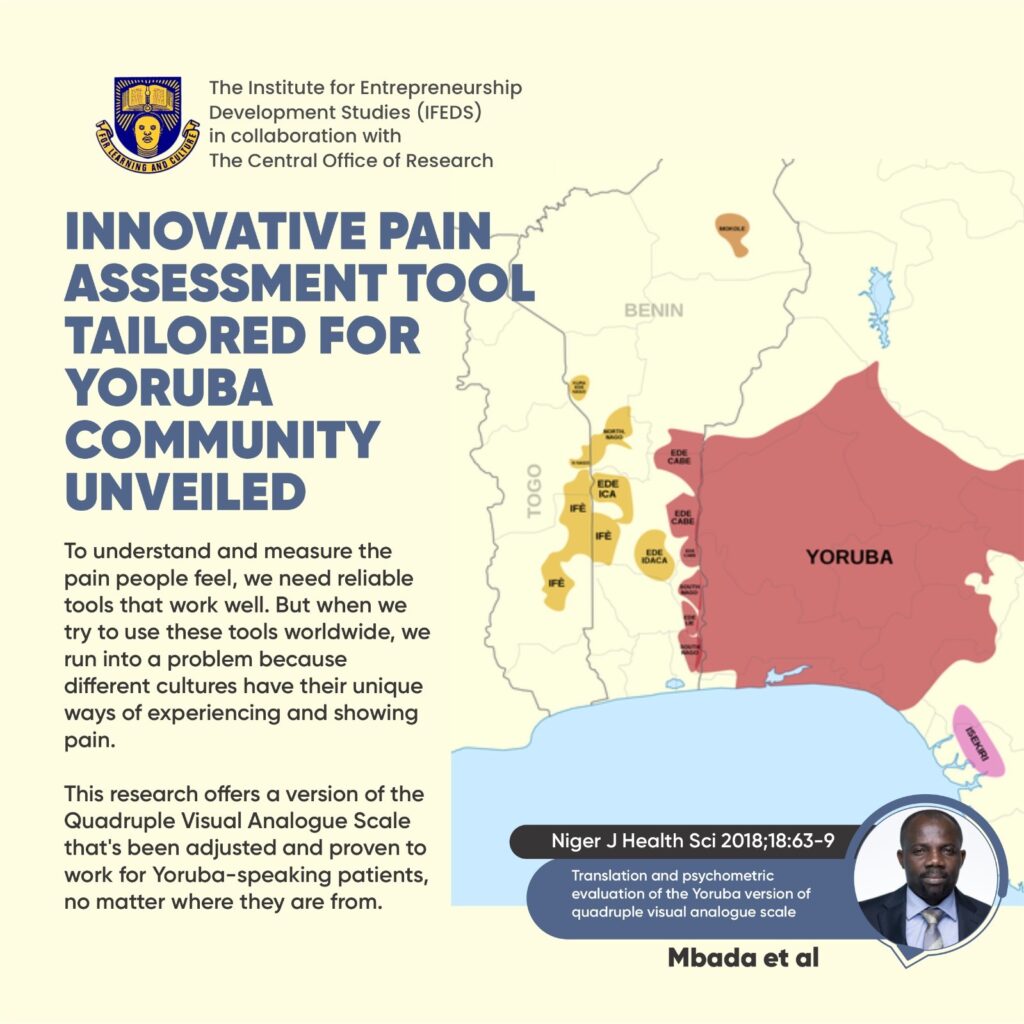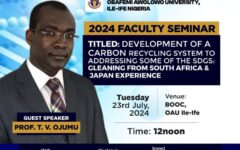Obafemi Awolowo University Hosts A Media Round Table With Its Researchers In The College Of Health Sciences
November 10, 2023 2023-11-10 11:20Obafemi Awolowo University Hosts A Media Round Table With Its Researchers In The College Of Health Sciences

Obafemi Awolowo University Hosts A Media Round Table With Its Researchers In The College Of Health Sciences
The meeting began with opening remarks from Prof Babatope Kolawole, the Provost of the College of Health Sciences who welcome the journalists and researchers who were sharing a platform to exchange ideas. He thanked Prof Adewole, the Editor of the Nigerian Journal of Health Sciences for putting this together, especially identifying researchers with the research of high impact published in the journal and enabling them to share their research findings with the rest of the world.
Prof Akanni Akinyemi, the Deputy Vice Chancellor, Research, Innovation and Development also shared similar sentiments, thanked everyone for making this a reality and the first of such organized by the Central Office of Research. He asked journalists to identify with the University as it is media friendly. He also noted the university is open to sharing research details that can positively impact, health, society growth and economic development. Thereafter, he declared the media roundtable open on behalf of the Vice Chancellor, Prof Simeon Bamire.
Thereafter, Mr Abiodun Olarewaju, the University Public Relations Officer welcomed participants and expressing gratitude for the recognition of researchers. Thereafter, Mr Sola Ogundipe was introduced as a journalist and asked to field questions.
Prof Mope Asaleye emphasized the effects of malaria on the unborn child using Doppler ultrasound, which evaluates changes in the blood flow to the baby’s brain. These changes according to the study group, could affect the growth of the unborn child or even lead to its death. The group therefore recommended routine Doppler ultrasound of the baby’s brain in pregnant women in the 3rd trimester of pregnancy to detect early signs of growth problems in the unborn child.
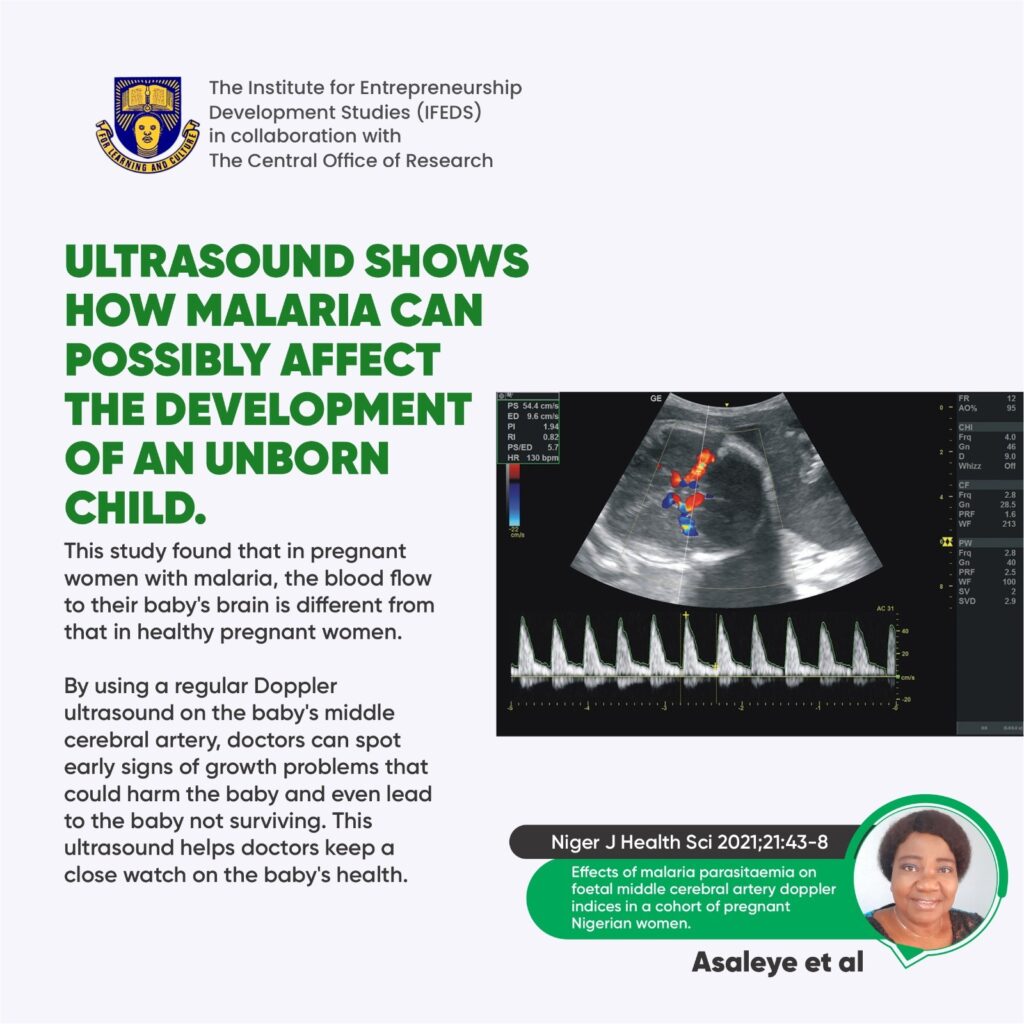
Thereafter, Dr. Akinwumi Komolafe shared his experience as a forensic practitioner and highlighted the importance of medicolegal reports in assisting the court in making informed decisions. He counselled anatomical pathologists and forensic practitioners on the need to avoid getting involved in autopsies in which there is significant demonstration of conflicts of interest. He also emphasized that the understanding of the principles of law was crucial to their practice. Akinwumi also discussed the process of conducting autopsies, the importance of unbiased and accurate autopsies and always seeking for detailed answers to the questions of the law on each autopsy. He summarized the questions of law to be resolved by every autopsy into ’12Cs’. Dr Komolafe also highlighted the importance of understanding the role of the expert witness in guiding the court through diligently assayed science-based evidence.
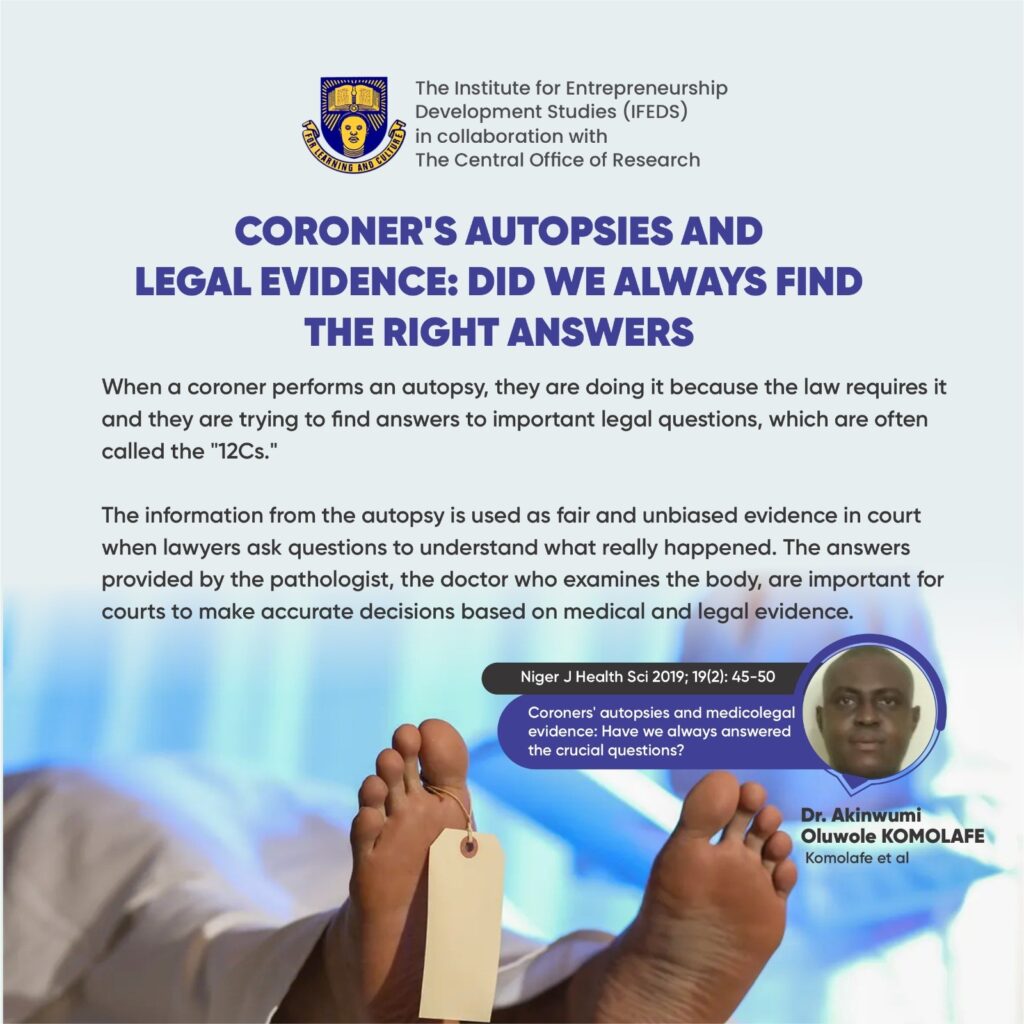
Dr Bolajoko A. Adewara also presented findings from a study that assessed available eye care resources in Obokun Local Government Area, Osun State. She discussed the challenges with and the need for prevention of vision problems. Combating vision problems requires training, education of the public and health care providers to identify signs and symptoms of eye problems early. Community and school eye screenings also enable prompt detection of eye diseases. The team emphasized the importance of regular eye check-ups, especially for those over 40 years, and the need to improve the availability of resources to identify and treat those with poor vision.
Dr. Adewara also discussed about glaucoma, the condition known as the “Silent Thief of Sight,” which can cause irreversible blindness without any noticeable symptoms. Glaucoma is a chronic disease and is common over the age of 40 but can also be present in children. She also discussed the symptoms of dry eye, a common but underdiagnosed eye condition. She explained how certain eye drops used to treat Glaucoma could cause dry eye as a side effect of the chronic use of such eyedrops. The doctor also mentioned that there are other causes of dry eyes’, and she noted, ‘that this can be identified in individuals younger than 40 but commoner in older individuals’, she concluded. The meeting emphasized the need for better training of health workers and the importance of national policies to prevent blindness.
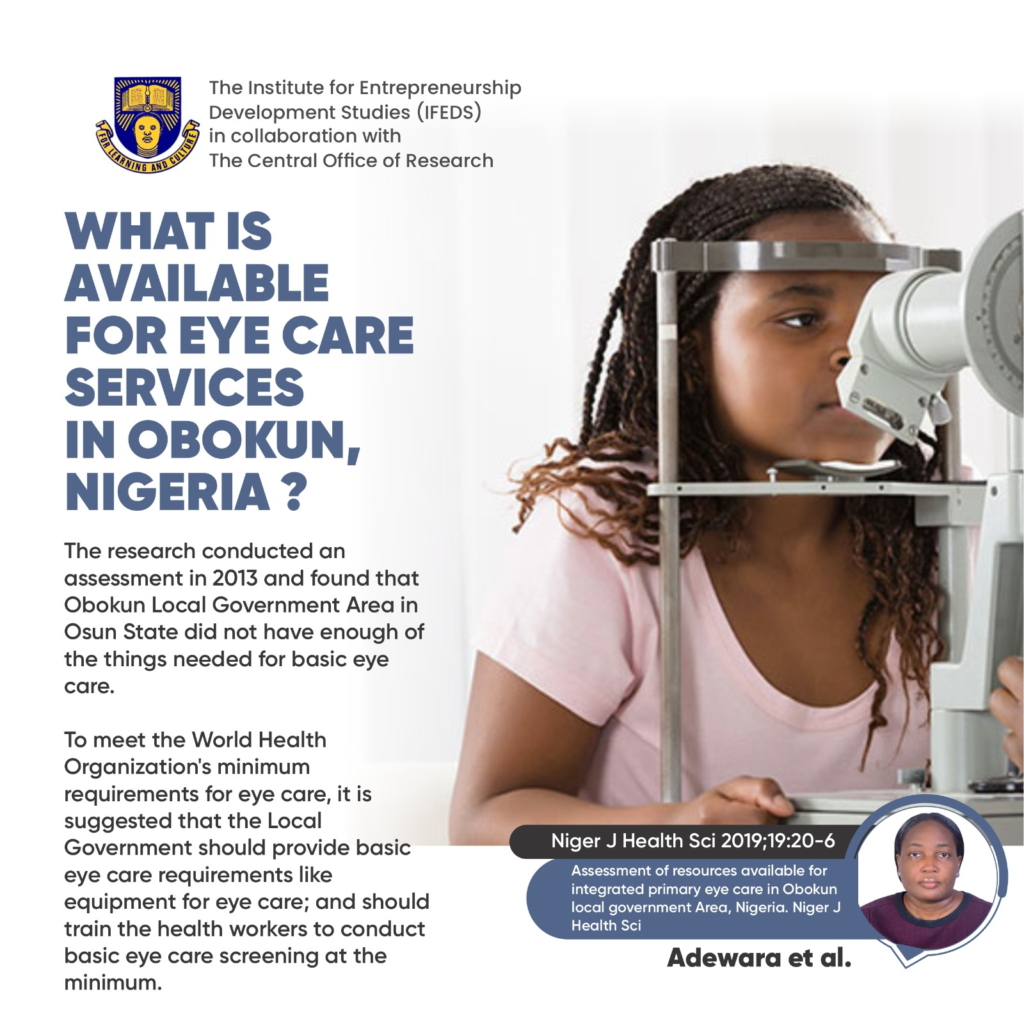
Dr Olorunmoteni presented her research that highlighted the inadequate mentorship practices for pediatric resident doctors in Nigerian training institutions. She highlighted the gap in the evaluation of mentorship practices and the importance of mentorship. She shared the findings of a study he conducted on the perceptions and practices of mentorship among pediatric residents in the country, which revealed low satisfaction among those with mentors due to insufficient time and meetings. Many pediatric residents were, however, not in a mentoring relationship and had misconceptions about what mentorship involves. Dr Olorunmoteni concluded by emphasizing the need for more effective mentorship programs to improve the quality of residency training and job satisfaction of resident doctors. The need for future studies that considered the mentors’ perspective was highlighted.
Finally, Dr. Mbada shared the details of his research and made recommendations for moving forward. Dr. Bolanle Omotoso presented the results of her research on the prevalence of abnormal lipid parameters and cardiovascular risk in kidney disease patients in Nigeria. The research highlighted the need for preventative healthcare measures and treatment strategies to manage lipid parameters in kidney disease patients, particularly among young people. The findings have significant implications for public health in Nigeria and beyond.
